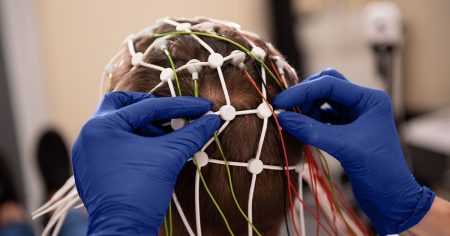Atrial fibrillation (AFib) is a common type of cardiac arrhythmia affecting about 59 million people globally. While AFib itself is not typically life-threatening, it can increase a person’s risk of mortality from cardiovascular conditions such as stroke, heart attack, and heart failure. People with AFib also have a higher chance of developing other diseases such as dementia and gastrointestinal and liver diseases. Early detection of AFib is crucial for better health outcomes, prompting researchers to develop new technology that can predict cardiac arrhythmia about 30 minutes before it occurs.
Scientists from the University of Luxembourg have created an AI model called WARN (Warning of Atrial fibRillatioN) that uses deep learning to analyze short segments of heart rate and predict the probability of an imminent switch to AFib. The model was trained and tested on electrocardiogram data collected from wearable devices worn by patients in a study conducted at Tongji Hospital in China. The WARN system was able to predict the transition from normal cardiac rhythm to AFib with an average warning of 30 minutes before onset with approximately 80% accuracy. This early warning could allow patients to take preventive measures such as medication to manage the condition.
The potential applications of this technology extend beyond medical devices to everyday smartwatches that could monitor a person’s cardiovascular system 24/7 and alert them to subtle changes that may indicate the onset of conditions like AFib. By detecting these changes early, individuals could seek urgent medical attention and potentially prevent the development of the disease and its associated complications. The researchers are working on personalizing the algorithm for individual patients by having them wear smartwatches for extended periods to allow the model to learn specific features of the disease for each person.
Dr. Paul Drury, a cardiologist, sees great potential in this technology for improving AFib treatment by alerting patients to impending episodes before they occur. This advance warning could enable patients to proactively treat their condition, potentially reducing emergency room visits and other morbidities associated with AFib. While current smart devices are good at detecting AFib, they are not able to predict the condition beforehand. Dr. Drury suggests that further validation studies with a larger number of patients with AFib would be necessary before recommending specific treatments based on the predictions made by the AI algorithm.














